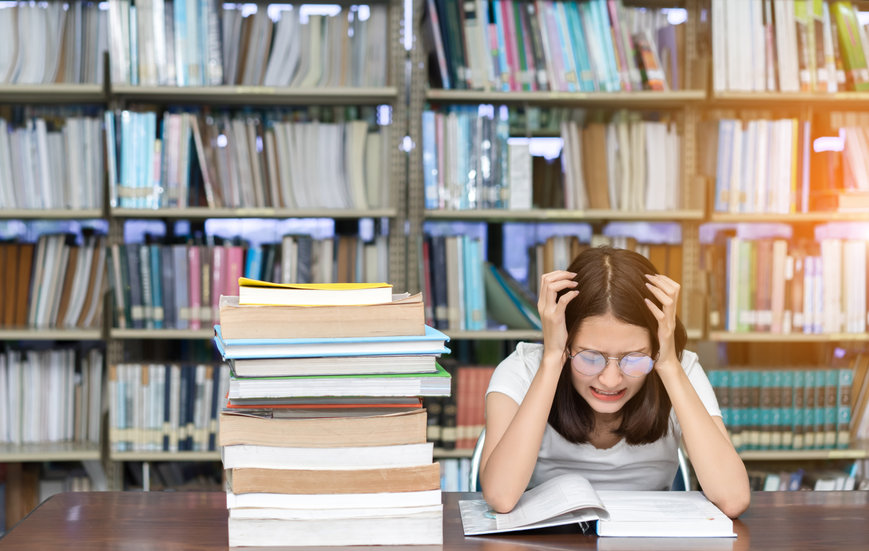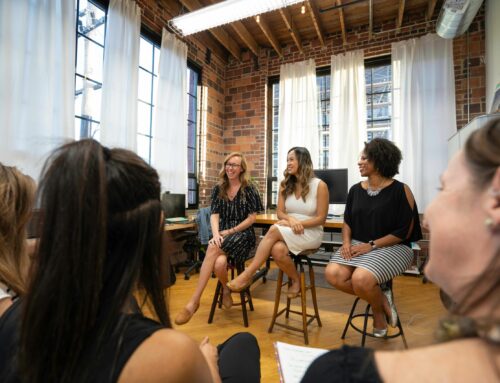College exams can be stressful—make that doubly stressful if you’re a homeschool graduate setting foot in a college classroom for the first time.
Take open-book exams, for example. The first time I ever had an open-book test was in college. I thought, “Great! I’ll have all the answers available to me, so it shouldn’t be too hard.” Boy, was I wrong.
In fact, I came to dread open-book exams because the questions seemed a lot tougher and more extensive than multiple-choice tests.
That’s not to say multiple-choice exams don’t have their own stressors. In my experience multiple choice exams tend to have four potential answers: Two that are clearly wrong and two that could be correct. Choosing one of these two options can create a lot of stress.
You may be a homeschool graduate who has test anxiety. And there’s nothing wrong with having that. Recognizing that the anxiety is there is nothing to be ashamed about. But there are ways to reduce your anxiety, as I’ll discuss in this post.
Let’s jump in!
1. Take a deep breath
You may want to practice breathing exercises such as 4-7-8 breathing. With this exercise, you exhale through your mouth before inhaling through your nose for a count of four. You then hold your breath and count to seven. Finally, you exhale out your mouth for a count of eight.
Whether you’re taking a test remotely on a computer or are sitting in a classroom, I recommend practicing this exercise. Personally, I’ve found breathing exercises like this one help me calm down when I’m feeling anxious.
2. Change negative thoughts
If you tell yourself that you’re not smart and you won’t be able to do well on a test, you’re setting yourself up for failure. Consider changing these negative thoughts into something positive.
Remind yourself that you were smart enough to get into college, so you’re smart enough to do well on this test. Beating yourself up before a big exam won’t help you do better. Be kind to yourself.
3. Watch what you eat and drink
Foods like salmon, tuna, blueberries, and dark chocolate can help boost blood flow, delivering healthy nutrients to your brain. This can help you think better, so you can have more confidence come exam time. You may also want to explore other brain-boosting foods, such as spinach and oranges.
As far as drinking is concerned, you should limit your caffeine intake as this can make you feel more stressed than you actually are. We all have easy access to coffee machines nearby, more than likely. Try to resist the temptation to make an extra cup of coffee.
You’ll also want to keep hydrated, which helps your brain function in tip-top condition. Keeping a water bottle near you can be a good reminder to drink water throughout the day.
4. Get on your feet
Exercise can relieve stress by pumping your body full of endorphins, which are feel-good neurotransmitters your brain produces.
Aim for at least 150 minutes of aerobic exercise a week. If you’re having trouble doing this, start off by exercising less and slowly increasing your frequency.
You could treat this like any other class project. Create a plan, find a partner to exercise with you, and stick with it.
5. Go outside
Another way to get some exercise is by reconnecting with Mother Nature and getting outside! Try to be intentional about your outdoor time.
Vitamin D has been shown to reduce stress, so it’s a great excuse to take a walk and soak up some sun before that big exam.
6. Take breaks throughout your day
Ideally, you’ll begin studying for an exam a week or more before it. This will give you more freedom to take breaks from your studies. Doing so helps your mind take a break from any stress you may be experiencing.
This can be as simple as cooking a meal or reading a comic book.
And taking a mental break from your studies — especially before bedtime — will help you relax and sleep better.
7. Get enough sleep the night before your test
Adequate sleep reduces stress and helps restore your mind, so you can concentrate and solve problems. I recommend reading something light before bedtime. So, put down your textbook and pick up a novel or a nonfiction book that helps take your mind off of your upcoming test.
According to the National Sleep Foundation, adults typically need at least seven to nine hours of sleep.








Leave A Comment